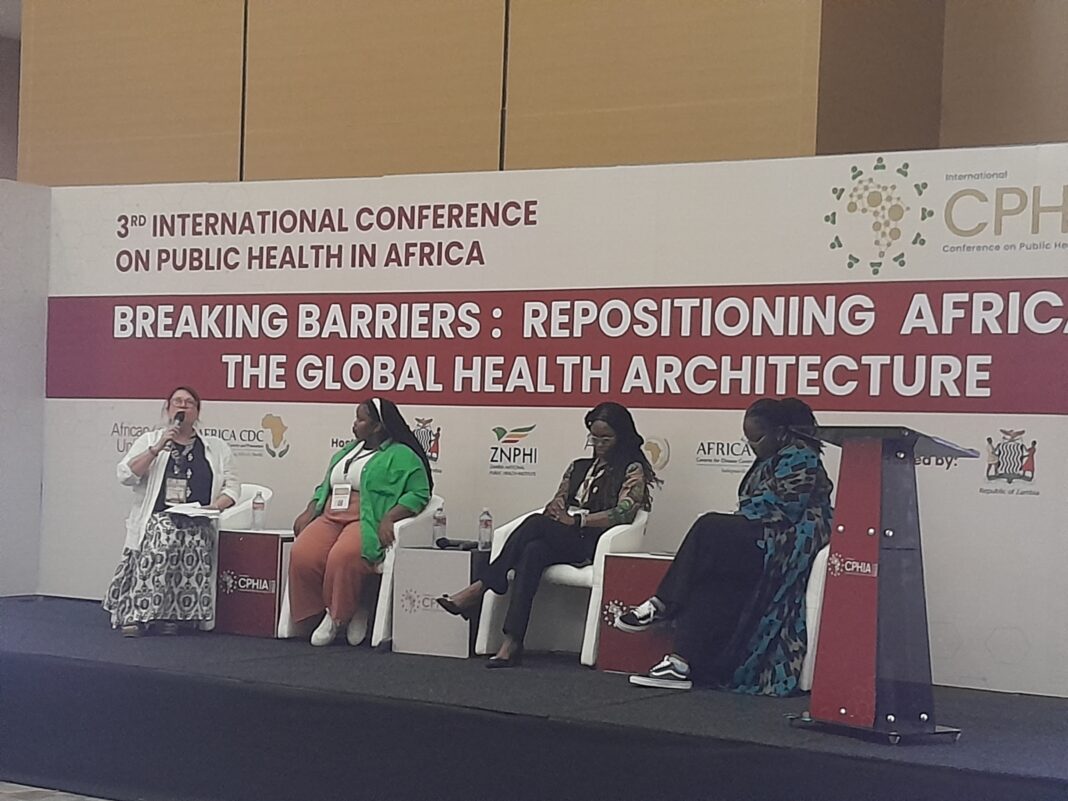Ntsoaki Motaung
Kerigo Odada, a Legal Consultant, Researcher, and Sexual and Reproductive Health and Rights (SRHR) Expert at the Centre for Human Rights, University of Pretoria, emphasises the crucial role of self-care within the framework of sexual and reproductive rights and reproductive justice.
According to Odada, self-care, as defined by the World Health Organisation (WHO), involves empowering individuals to enhance their health, prevent diseases, maintain their well-being, and manage illnesses or disabilities, either independently or with minimal reliance on healthcare facilities or professionals.
Self-care interventions are designed as tools to complement facility-based care, acknowledging individuals as active participants in their healthcare.
These interventions aim to empower individuals to take an active role in their sexual and reproductive health.
Odada highlights that within the context of Sexual and Reproductive Health and Rights (SRHR), self-care encompasses various practices.
These include self-monitoring of blood glucose or blood pressure during pregnancy, self-administration of injectable contraception, the use of ovulation predictor kits, self-testing for pregnancy diagnosis, self-monitoring for symptoms-based fertility awareness, self-management of components of medical abortion within comprehensive abortion care, self-collection of samples for HIV and STI testing, HPV self-sampling for cervical screening, as well as the use of lubricants for sexual health and well-being.
This discourse unfolded within the parallel session Track Four B, themed ‘Self-care Strategies for Comprehensive SRHR: Contraception, Safe Abortion, Menopause, Safe Sex, and Information’, at the 3rd International Conference on Public Health in Africa in Lusaka, Zambia, spanning from November 27 to 31.
Speaking to her colleagues, Odada emphasised the need to delve into the impact of health financing and resource allocation on the realisation of reproductive rights in Africa within the context of self-care and sexual and reproductive rights.
She highlighted the persistent shortfall in meeting financial obligations outlined in the Abuja Declaration by numerous African governments.
This declaration mandates member states to allocate a minimum of 15 percent of their annual budgets towards enhancing the health sector.
“While commendable progress has been achieved, reflecting over two decades since the protocol’s inception, we must also acknowledge how the failure to meet obligations related to Sexual and Reproductive Health and Rights (SRHR) has adversely affected their realization in several African countries,” she said.
Odada further pointed out the distressingly high maternal mortality ratios prevailing across the continent, estimating 545 maternal deaths per 100,000 live births annually.
Alarming statistics also highlighted the persistently high number of deaths attributable to unsafe abortions, indicating that as of 2019, women from sub-Saharan Africa accounted for the highest incidence, reaching 185 deaths per 100,000 abortions, culminating in approximately 15,000 preventable deaths each year.
Speaking during the session, Saidy Brown, an HIV/AIDS Activist from South Africa, shared her approach to advocacy, emphasising the priority she places on self-care while carrying out her work.
Brown underlined the importance of honesty in discussing her personal life experiences while also acknowledging the significance of maintaining her mental well-being.
“In my advocacy work, I have come to realise the critical balance between the importance of the cause and the importance of my own well-being. It is essential for me to prioritise self-care, particularly by safeguarding my mental health.
“Given that I utilise online platforms for my advocacy, where interactions can sometimes be harsh, protecting my mental well-being is paramount,” she expressed.
Currently, 3.6 billion people, constituting half of the world’s population, lack access to essential health services.
WHO strongly recommends self-care interventions for all countries and economic settings, recognising them as a crucial pathway to achieving universal health coverage.
These interventions not only promote health but also contribute to global safety and support vulnerable populations.




